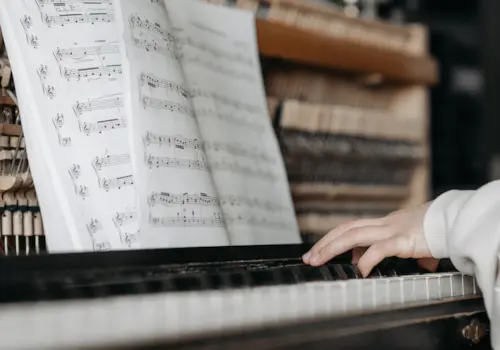Pianist and piano teacher Frances Wilson explains the power of the word 'yet' for us pianists
Those of us who teach and play the piano appreciate that music requires commitment in the form of consistent, focused practising.
This doesn't mean a snatched half-hour here or there or a blitz the night before the piano lesson, but regular engagement with the instrument and its literature (at least five days out of seven for noticeable progress to be achieved).
As pianists, much of our ‘work’ (practising) is done alone, for some in almost monk-like seclusion. This separateness enables us to focus fully on the task in hand, without distraction. Most of us who chose the piano as our instrument actively enjoy the solitariness, but equally this time spent alone can trigger self-doubt and negative criticism from within. Comparing oneself to others sets up further negative thoughts and can lead to lack of confidence and motivation.
The danger of comparison
When I returned to the piano after a 20-year absence, I wanted to play EVERYTHING. Of course, this was a ridiculous ambition, but my appetite for repertoire focused my attention and motivated me to practise diligently and enjoyably virtually every day.
But when I co-founded the London Piano Meetup Group and started meeting other pianists, I rubbed pianistic shoulders with people whom I perceived as ‘better’ than me – because they were playing repertoire which I believed I could not play. This depressed me and the mantra, ‘I can’t play that’, began to haunt my practising and my participation in the Meetup group’s regular performance platforms. I grew increasingly envious of the people who knocked off Ravel's Jeux d'eau or Grainger's Molly on the Shore with apparent ease, not to mention countless other pieces which I aspired to play.
The silver lining – 'yet'
But hindsight and experience have taught me the power of ‘yet' – that simple three-letter word which can turn a negative phrase into something positive and affirming:
‘I can’t play that – yet’
👇🏼
‘Yet’ turns the task into a challenge and is the spur to practise, to strive, to master
👇🏼
‘Yet’ makes that Beethoven Sonata or Rachmaninov Étude-Tableau achievable, with practice
👇🏼
‘Yet’ turns the seemingly impossible into the possible
👇🏼
‘Yet’ is a declaration of intent.
The next time you practise, try and use this mindset and see if it makes a difference!
Frances Wilson is a pianist, piano teacher, concert reviewer, writer and blogger on music and pianism as The Cross-Eyed Pianist.








